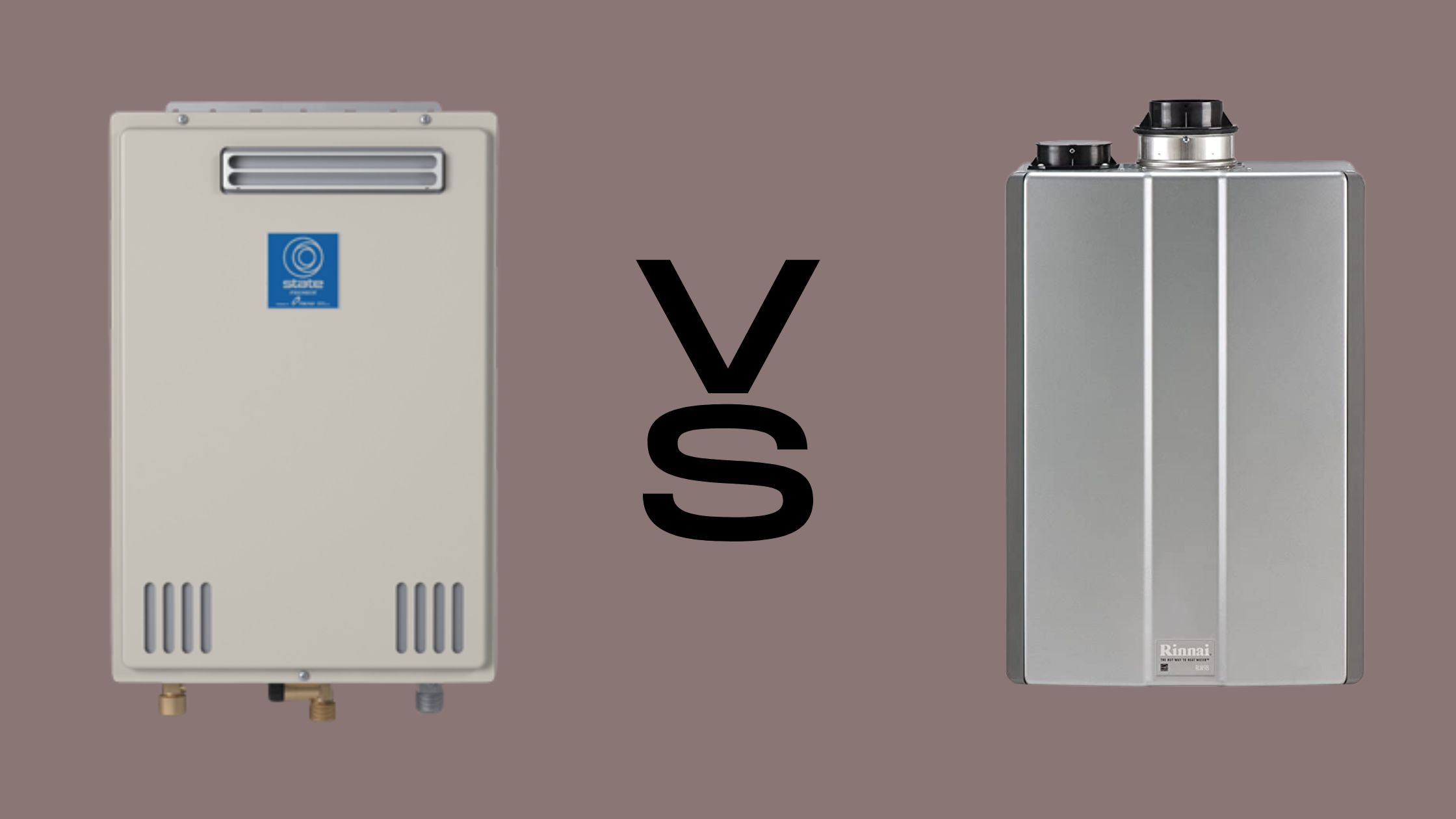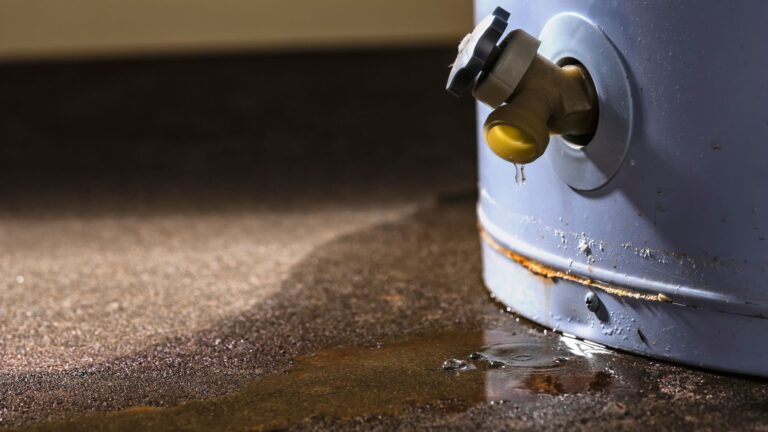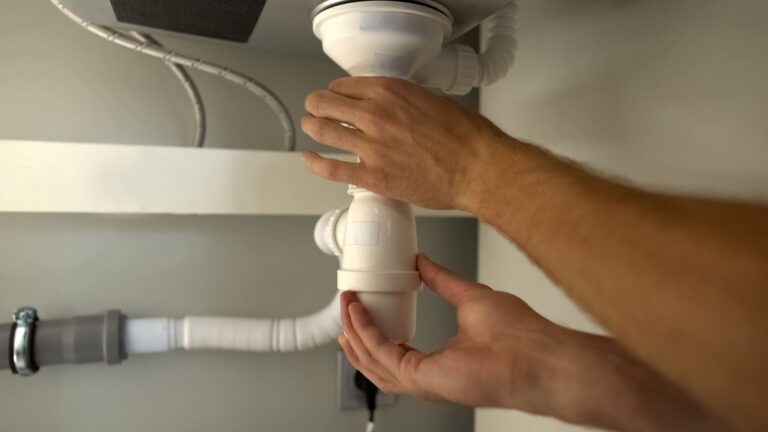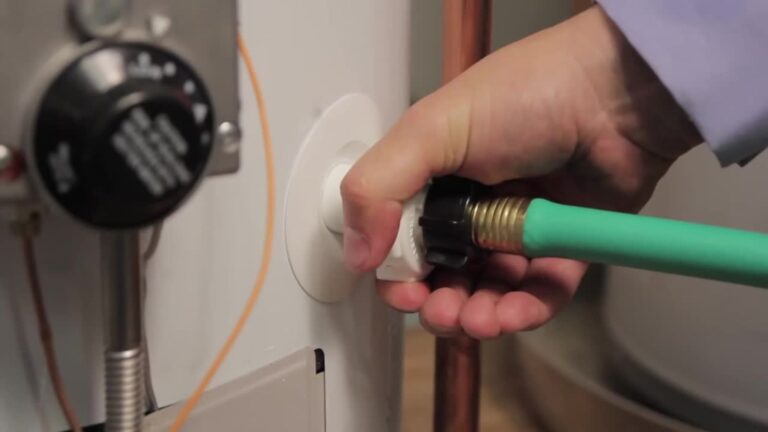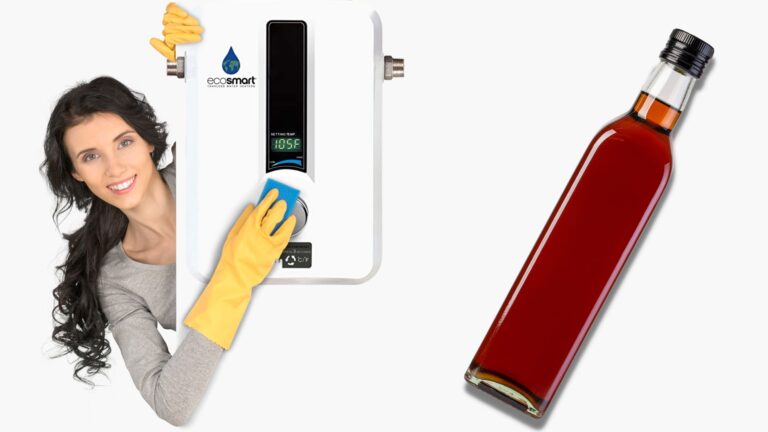Condensing VS Non-Condensing Tankless Water Heater
It’s great that you’ve already decided to go for a gas-powered tankless water heater as it outperforms a traditional tank-style model. Tankless water heaters provide an unlimited hot water supply, take less space, and require less maintenance which makes them more useful.
But you got confused after finding it out that gas tankless water heaters have two types; condensing and non-condensing. Now, which one to choose, ha?
Don’t take the pressure. We’ve done the research for you. In this article, we’ll cover everything you might ask about condensing vs con-condensing tankless water heaters so you can make the right choice.
Let’s get to the article.
Condensing VS Non-Condensing Tankless Water Heater
Here’s a quick comparison before we go deeper into the topic.
| Comparison Factors | Condensing Tankless Water Heater | Non-Condensing Water Heater |
| Combustion temperatures | Lower | Higher upto 356℉ |
| Efficiency | Higher | Lower |
| Initial purchase costs | More expensive | Less expensive |
| Maintenance | Requires higher professional maintenance | Requires minimal professional maintenance |
| Fuel consumption | Less | More |
| Production of unwanted byproducts | Less | More |
Key Differences Between a Condensing and Non-Condensing Tankless Water Heater
This time, we’ll share the key factors that differ a condensing water heater from a non-condensing one.
Work Process
Before we delve into deeper factors, let’s start with how these two different machines work.
Whenever you need hot water, this happens in a condensing tankless water heater:
- Cold water comes in. And, the source of the cold water is the bottom of your heater.
- Then, it ignites a flame in the two heat exchangers.
- The cold water is heated while passing through the secondary heat exchangers. And, any latent heat will be recaptured before going to the vent system.
And, here’s how a non-condensing water heater works:
- Non-condensing water heaters utilize a single heat exchanger for heating the water to your preferable temperature.
- Water passes through a heat exchanger and hot exhaust gasses heat the water.
- And, the remaining heat that’s not utilized to heat the water is expelled through the exhaust venting.
Efficiency
When the discussion is about efficiency, condensing water heaters stand in the first position. Although both condensing and non-condensing tankless water heaters are more efficient and economical than electric water heaters, condensing water heaters ensure of 90% efficient rate.
On the other hand, non-condensing water heaters can’t provide you with over an 80% efficient rate. It’s because a condensing water heater drives down your energy usage.
Lifespan
Both kinds of water heaters can last a minimum of 20 years if you can maintain them properly.
Still, if you compare the two types, a condensing heater’s pipes have to be of a high-quality product. Otherwise, the pipes will be more prone to wear and tear for corrosion. Eventually, you’ll need to replace them a bit frequently.
On the contrary, gases with higher temperatures pass through different systems in a non-condensing water heater. For this, non-condensing systems should have a higher-quality ventilation system.
So, make sure you invest in things that you can’t compromise with. You’ll have a longer journey with the machine.
Carbon Footprint
Everyone wants to use a system that inflicts less environmental damage, right?
In that case, a condensing water heater wins, again. Since it recycles unused heat, the production of waste is negligible here. Moreover, you can safely dispose of any waste into a low-cost drainage system.
However, the number of water vapors that both of the heaters release into the air are toxic to some levels. Still, the level is always lower when you use a condensing type.
Investment
As we’ve mentioned earlier, condensing water heaters are more expensive in the short run.
Their replacement parts are not that high-priced but the parts that are involved in the extra heat exchanges are costlier. But if we talk about utility savings, condensing water heaters are cheaper in the long run.
About a non-condensing water heater, its purchase cost is lower and it’s a cheaper option in the short range.
Condensing Water Heater Pros and Cons

Let’s start with the positive facts of a condensing water heater:
The Pros
- More supply of hot water and less wastage: You’ll get a continuous supply of hot water until the cold water inlet is closed. Since the water’s circulation and recirculation take place within the system, the waste of water is very little. In comparison, non-condensing heaters use a single heat exchanger so the exhaust isn’t reused, it’s ventilated out of the system instead.
- Cheaper maintenance: Condensing water heaters do not necessarily require an expensive venting material. Because the water pH is even weaker than citric acid. Thus, condensing water heaters work great with PVC venting systems unlike stainless steel in several non-condensing heaters’ models.
- Higher energy efficiency: The main difference between a condensing and a non-condensing water heater is that a condensing one can recycle excess heat and reuse it afterward to make more hot water. It not only ensures a continuous hot water supply but also saves energy to maintain the set temperature.
- Cost savings: Although a condensing water heater is more expensive than a non-condensing one, you can save about 10-20% off of your gas bill by using condensing technology.
- Smaller carbon footprint: The less energy usage of a condensing water heater makes it more environmentally friendly as the machine doesn’t have a poor drainage system.
The cons
- High initial setup costs: An unit of a condensing water heater can cost around $2,000 which is three times more than a conventional water heater and almost double of a non-condensing
ALSO READ:
Heat Pump vs Tankless Water Heater
Non-Condensing Water Heater Pros and Cons

Non-condensing water heaters also offer some pros and cons you should know before buying one.
The Pros
- Instant drainage: Non-condensing water heaters do not store excess condensate like a condensing water heater. So, if there’s any trace of waste vapor, it’s lost to the immediate surrounding. Although the system is responsible for wasting energy and it leads you to get less efficiency, the internal systems aren’t exposed to acidity.
- Energy efficiency: Although it’s less than a condensing water heater, non-condensing models are more efficient than other traditional water heaters. You can expect to get as high as an 80% efficient rate from a non-condensing heater.
- A non-condensing tankless water heater is cheaper than a condensing one.
- It’s smaller in size, so it won’t take too much space.
The Cons
- Expensive vent piping: Non-condensing water heaters use stainless steel vent pipes to manage the superfluous heat by venting it to the surrounding. Usually, the vented exhaust is around 300℉. For this, the exhaust is both hot and corrosive and so the venting is more complex. You need to use expensive vent pipes that are heat and corrosion-resistant.
- Potential leaks: The high heat doesn’t only make the venting complex and expensive, but it increases the chances of having potential leaks as well.
ALSO READ:
Water Heater Anode Rod Aluminum vs Magnesium
Should I Buy Condensing or Non-Condensing Tankless Water Heater?
As you’ve made this far of our article, you’ve already got your answer.
Although the final decision of buying something depends on your preference, go for a condensing water heater if you want higher efficiency, a longer lifespan, and less environmental pollution. Also, choose a condensing water heater only when the budget isn’t an issue for you.
Other than that, if you want a less expensive option that can get the job done for you, go for a non-condensing one.
It’s not like you won’t have a constant hot water supply from a con-condensing model, it’s just you can’t expect the greater features of condensing water heaters in this case.
ALSO READ:
Rheem vs AO smith Water Heater
Is a Condensing Water Heater Worth It?
Yes. Some of the compelling reasons why a condensing water heater does worth every penny are- increased efficiency, less energy wastage, less maintenance cost, and less environmental degradation.
A condensing water heater costs around $260 every year for an average household. These heaters last long (around 20 years) as well. The gases that come out from the system are only 100℉. Eventually, you don’t need to spend a lot of money on expensive piping which is needed for a non-condensing heater.
Moreover, these heaters are sealed from the outside which is a safer option from the air-sealing point of view. You can easily mount it anywhere like a basement, a laundry room, or in your kitchen.
Overall, it’s a good idea to spend a bit more on an expensive machine as it reduces the future cost. And, give attention to the other benefits too!
ALSO READ:
Frequently Asked Questions
Can I use PVC pipes to vent a tankless water heater?
The answer can be both yes and no. As long as you’re using a condensing tankless water heater, you can use PVC pipes for venting as the exhaust gas won’t be that hot in this case.
But if your tankless water heater is a non-condensing model, PVC won’t withstand the high-temperature exhaust gas. In that case, stainless steel venting is a must-have feature.
Which tankless water heater produces more savings?
A condensing water heater saves more money because it recycles its byproducts and produces extra heat. This byproduct can potentially be recycled into your water bills but it depends on the system you’ve followed to connect the condensation line. Eventually, it reduces your water bills.
Do condensing water heaters need a drain pan?
A drain pan is needed only when the heater is in a location where the acidic condensate can’t drain freely to an outlet. Usually, drain pans are kind of a must if your heater is kept in the living quarters.
Conclusion
And, that’s what we kept for you about condensing vs non-condensing tankless water heaters.
As you see, it’s not hard to make a choice between them. A huge number of people go for non-condensing models as they don’t cost too much and have an existing ventilation system.
And, people who want a permanent solution and want more efficiency go for a condensing water heater. Both models last long and meet your basic water needs perfectly. So, the decision is yours. Good luck!
ALSO READ:
Propane Vs Electric Tankless Water Heaters

